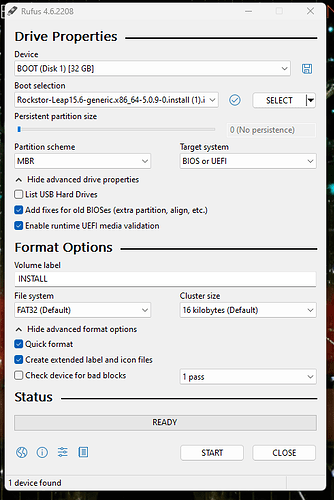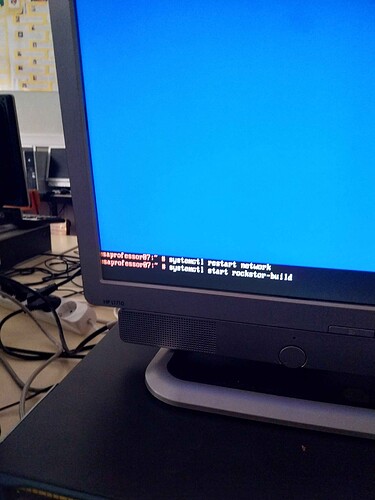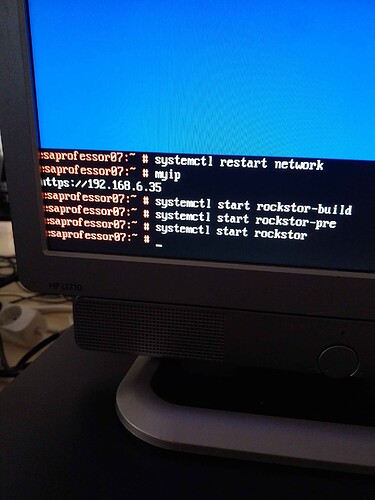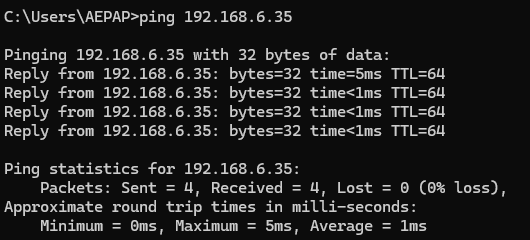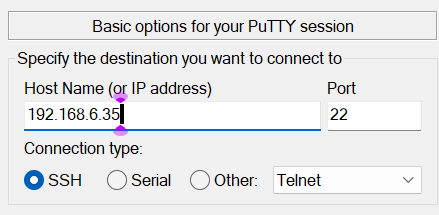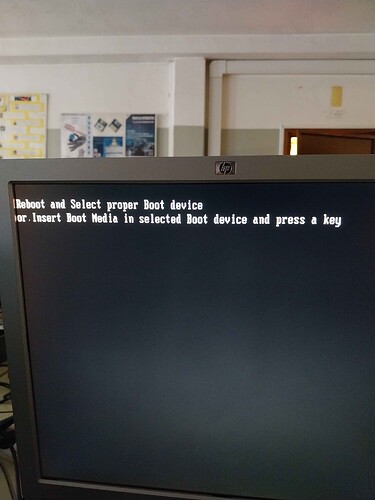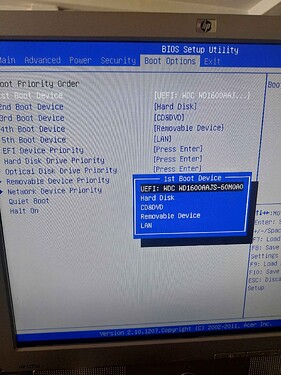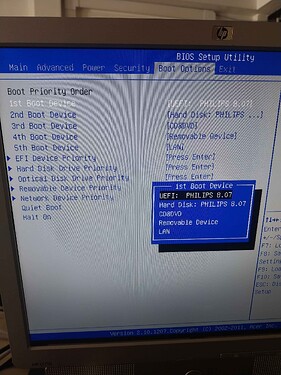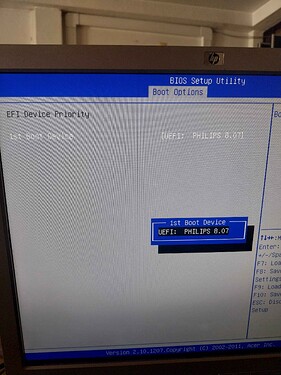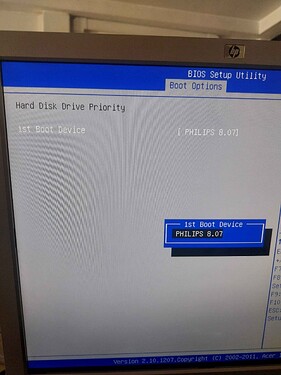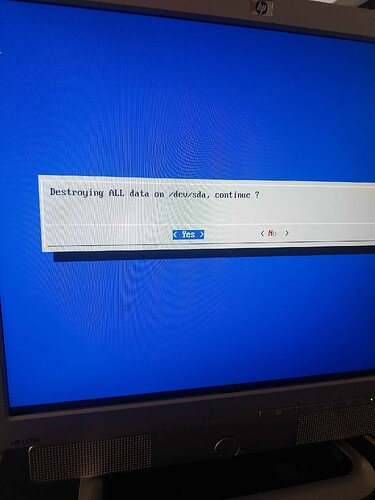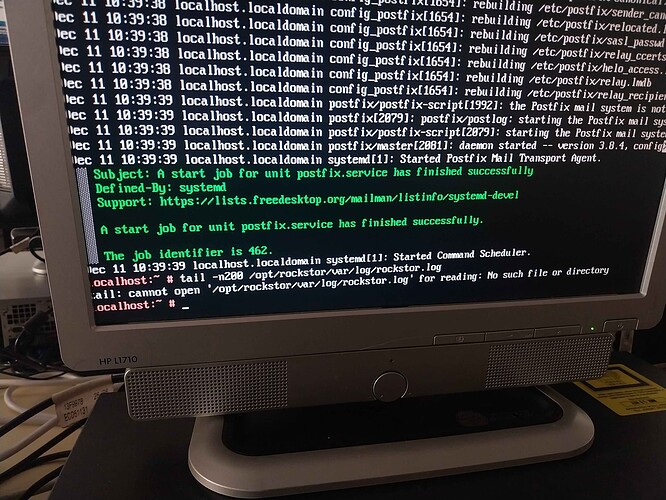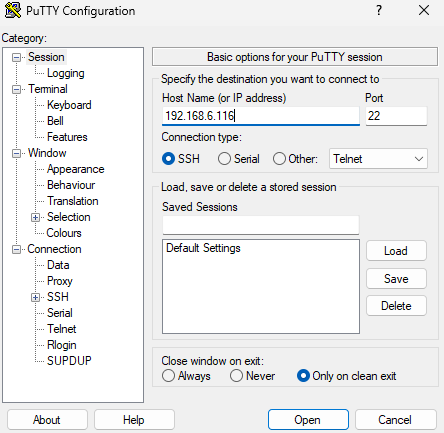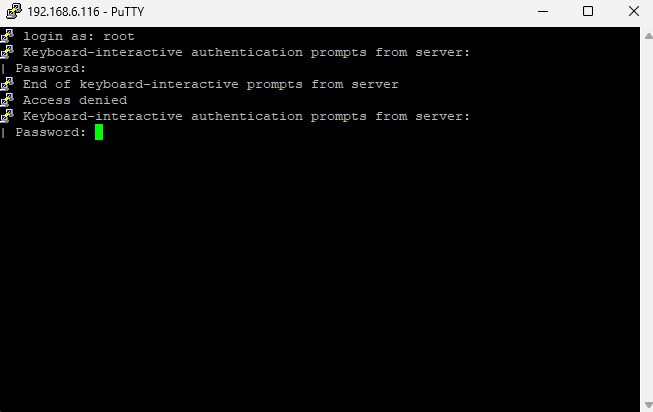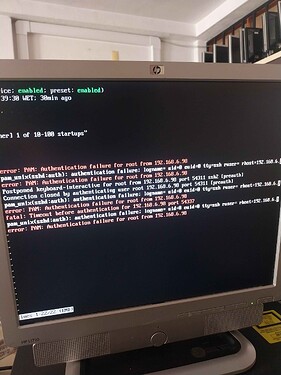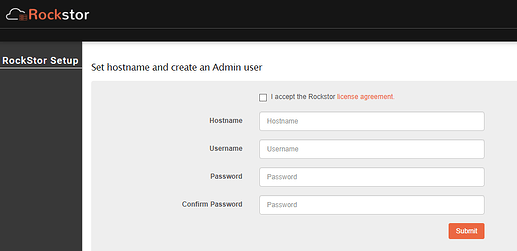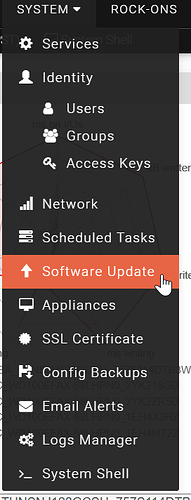Hello everyone,
I am a Linux beginner who is trying to make a NAS for my final project in this course.
I had gone with TrueNAS but the systems that I have cannot handle it thus I have moved to Rockstor.
I have two main problems:
1. I’ve downloaded Rockstor through a flash drive, first using the normal option and then using the failsafe option, and, when I insert it, it asks for a hard drive (I had 2, removed one but the issue persists), it does the installation in either the hard drive or the flash drive (I believe it’s the latter) but, when I boot it up without the flash drive, it says i don’t have an operating system installed.
2. As Rockstor installs, it encounters a few issues:
First, it fails to start Activation of DM Raid sets (which I am not that worried about at the moment, this might be since I removed the other hard drive I had in here).
Secondly, this shows up:
[FAILED] Failed to start Network Manager Wait Online.
[DEPEND] Dependency failed for Build Rockstor
[DEPEND] Tasks required prior to starting Rockstor
[DEPEND] Rockstor startup script
[DEPEND] Rockstor bootstrapping tasks
When typing journalctl -xe -u rockstor, journalctl -xe -u rockstor-pre and journalctl -xe -u rockstor
It shows me these reports:
Dec 02 11:26:36 localhost.localdomain systemd[1]: Depend failed for Rockstor startup script.
Subject: A start job for unit rockstor.service has failed
Defined-By: systemd
Support: https:/:lists.freedesktop.org/mailman/listinfo/systemd-dlevel
A start job for unit rockstor.service has finished with a failure.
The job identifier is 393 and the job result is dependency
Dec 02 11:26:36 localhost.localdomain systemd[1]: rockstor.service: Job rockstor.service/start failed with result 'dependency'```
Dec 02 11:26:36 localhost.localdomain systemd[1]: Depend failed for Tasks required prior to starting Rockstor.
Subject: A start job for unit rockstor-pre.service has failed
Defined-By: systemd
Support: https:/:lists.freedesktop.org/mailman/listinfo/systemd-dlevel
A start job for unit rockstor-pre.service has finished with a failure.
The job identifier is 394 and the job result is dependency
Dec 02 11:26:36 localhost.localdomain systemd[1]: rockstor-pre.service: Job rockstor-pre.service/start failed with result ‘dependency’```
Dec 02 11:26:36 localhost.localdomain systemd[1]: Depend failed for Rockstor bootstrapping tasks.
Subject: A start job for unit rockstor-bootstrap.service has failed
Defined-By: systemd
Support: https:/:lists.freedesktop.org/mailman/listinfo/systemd-dlevel
A start job for unit rockstor-pre.service has finished with a failure.
The job identifier is 392 and the job result is dependency
Dec 02 11:26:36 localhost.localdomain systemd[1]: rockstor-bootstrap.service: Job rockstor-bootstrap.service/start failed with result 'dependency'```
I have already considered downgrading Rockstor and trying to install it on the drive itself but I'm not sure if that's possible.
I can also give away the machine specifications although I don't think that's an issue.